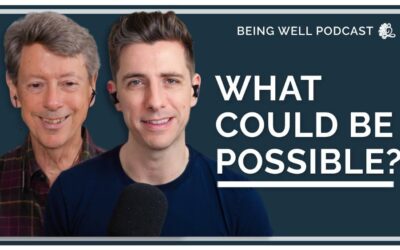Explore how the long-term effects of growing up without love and support can impact your personal life and parenting. This article by PsychCentral offers insight on how to break the cycle and provide the emotional presence your children need.

If you had an unloving childhood and your emotional needs went unmet by your caretakers, you’re not alone. This experience is common, and the effects can run deep and long term.
“Parenting and early life experiences set the stage for a child’s sense of what it is to be loved and safe in an often-confusing world,” says clinical psychologist Carla Marie Manly, PhD from Santa Rosa, California. “When a child is neglected, rejected, or abused, the sense of being unloved — and deeply unlovable — tends to persist and affect all areas of that individual’s life.”
She reminds that blaming your parents or family of origin for destructive behaviors isn’t the most helpful idea. “But there’s great benefit in understanding and healing so as to not perpetuate the damage done.”
Learning the potential effects of an unloving childhood is a great place to start. So what happens when a child doesn’t feel loved growing up?
Insecure Attachment Style
According to a 2018 study, attachment theory can help us understand how our formative relationships as children might impact how we navigate connection as adults.
“When a person’s first attachment experience is being unloved, this can create difficulty in closeness and intimacy, creating continuous feelings of anxiety and avoidance of creating deep meaningful relationships as an adult,” says Nancy Paloma Collins, LMFT in Newport Beach, California.
Both Manly and Paloma Collins suggest that an insecure attachment style from an unloving childhood can ultimately impact:
- how you communicate your emotions and needs
- how you understand the emotions and needs of your partners
- how you respond to conflict
- how you self-regulate
- your expectations of partners and relationships
- how you navigate life, work, and relationships in adulthood
Undeveloped Emotional Intelligence
Children’s brains are like sponges, says Manly. “[They] see, feel, and notice parents’ behaviors, attitudes, and energy. If parents don’t model healthy emotional intelligence, their children won’t develop strong emotional intelligence.”
Even if your parents didn’t model it in childhood, she notes that a healthy “EQ” can be built with self-awareness of the deficit and consistent action taken toward improving it.
Impaired sense of self
“Given that children look to their parents and caregivers for a sense of who they are, parents who do not show their children genuine, unconditional love tend to create lasting harm to their children’s sense of self,” says Manly.
She explains that an impaired sense of self usually develops when a child feels:
- unloved
- unwanted
- rejected
- neglected
- abandoned
- chronically criticized
Paloma Collins adds that folks who felt unloved as a child might also feel like they’re “not good enough” in adulthood.
Lack of trust
“Trust issues” are another common consequence of being unloved by parents growing up.
“Children who are not raised in safe, loving, respectful, and consistent environments tend to grow up feeling very unsafe and untrusting,” explains Manly. As a result, they tend to experience challenges trusting themselves and others throughout life.
“This deep sense of distrust can create a dynamic of trusting those who are not trustworthy while being untrusting of those who are trustworthy. On the other end of the spectrum, [it] can cause a child to create strong defenses that lead to an inability to trust anyone.”
Difficulties navigating boundaries
Boundaries are learned. So if your family of origin didn’t model healthy boundaries, you might lack the skills to navigate them as an adult.
According to Manly, your boundaries might become overly porous or rigid. This can lead to you potentially:
- being taken advantage of
- taking advantage of others
- keeping your guard up for “protection”
- creating barriers to healthy relationships
“They might also experience codependency, [which might mean] that they’re subconsciously looking to ‘fix’ the caregiver formative attachment experience,” adds Paloma Collins.
Choosing toxic friends and partners
“Children who grow up in toxic environments necessarily accept unhealthy environments as ‘normal,’” says Manly. By attempting to cope by rationalizing the irrational, she notes that you can become comfortable and “at home” in similar situations in the future.
“The child will mature into an adult who unconsciously craves the familiar, ‘comfortably uncomfortable’ toxic dynamics of childhood,” she adds. “The now-adult will unconsciously choose friends and partners who seem palatable and even healthy yet ultimately perpetuate the negative patterns witnessed and lived in childhood.”
Dominated by fear of failure
According to Manly, fear of failure can stem from receiving “love” from parents that’s conditional and based on performance.
“When a child’s parents withhold love or offer only criticism, the child grows up feeling incredibly insecure on the deepest of levels,” she says. “A fear of failure can wreak havoc on a child’s — and adult’s — ability to take healthy risks and expand personally and professionally.”
Feelings of isolation
“Many ‘lone wolf’ types are actually adults who learned early in life that relying on others for love and connection is unsafe,” says Manly.
“This deeply rooted feeling of ‘being alone in the world’ often creates unconscious habits that persist into adulthood,” she explains. As a result, they might tend to isolate themselves through life.
Extreme sensitivity
According to Manly, extreme sensitivity (or insensitivity) can result when parents:
- invalidate a child’s experiences
- do not model healthy emotional sensitivity
- ignore the importance of emotional regulation and processing
“Of course, some children are innately more sensitive than others, yet extreme sensitivity is often the result of a lack of caregiver attunement in early life,” she adds.
Feeling conflicted and generally insecure
“When parents do not model stable, healthy, secure, and loving behavior, a child will often grow up feeling chronically destabilized and insecure,” says Manly.
As adults, they may seem to be secure or confident. But she notes that their “internal conflict and insecurity often create significant intrapersonal and interpersonal disruption.”
Mental health conditions
It’s also possible to develop mental health conditions as a result of growing up without love from parents.
Research suggests that child emotional neglect or abuse can have long-lasting mental health impacts. According to a 2016 study, some mental health conditions that may arise from childhood emotional maltreatment include:
- anxiety disorders
- depression
- dissociative symptoms
- substance use disorder
- phobias and fears
- post-traumatic stress disorder (PTSD)
A 2017 study indicates that knowing whether or not a person experienced emotional neglect or felt unwanted as a child is important for developing a helpful treatment plan.
Tips for healing in adulthood
The effects of a childhood without love may be deep rooted, but they can be healed.
Some ways you can heal from feeling unloved as a child include but are not limited to:
- learning your triggers
- engaging in inner child work
- practicing self-care and self-love
- practicing setting boundaries
- using your past to learn what you do and don’t want in life
- journaling or reading interactive self-help books
- positively reframing internalized beliefs (e.g., “I am an unloved daughter” to “I deserve love as an adult”)
- building community in support groups with folks who share similar experiences
- being patient and kind to yourself through the healing process
“Validating our inner child and the pain that we have experienced as children is not only healing but empowering,” says Paloma Collins. “Trust the process and accept that healing is on a continuum.”
Therapy can also help you heal. Manly says that individual therapy is an ideal place to start, but group therapy is great, too. “When a group is run by a skilled clinician, participants benefit from the connective energy of others’ experiences while also enjoying professional support.”
She reminds that doing the work can be challenging, but the outcome is worth it. “Although the journey might seem long and even impossible, you deserve to heal from the inside out so that you can live your best life.”
Next steps
Being unloved as a child or feeling unwanted by parents is more common of an experience than you might think. And it can have long-lasting effects on those who go through it. Some include having:
- an insecure attachment style
- low emotional intelligence
- trust issues
- poor boundaries
- toxic relationships
- feelings of isolation
- mental health conditions
Whether you felt unloved by your parents or you experienced emotional neglect as a child, try to remember that you can heal at any time. Some strategies for healing the effects of an unloving childhood include:
- participating in individual or group therapy
- practicing self-care
- reading self-help books
- understanding your triggers
- healing and validating your inner child
“Everyone has their own experience, work to do, and process,” reminds Paloma Collins. So try to be patient, give yourself grace to work through the effects of your unloving childhood, and remember that finding healing and healthy love in adulthood is possible.
Check out the original post here.



